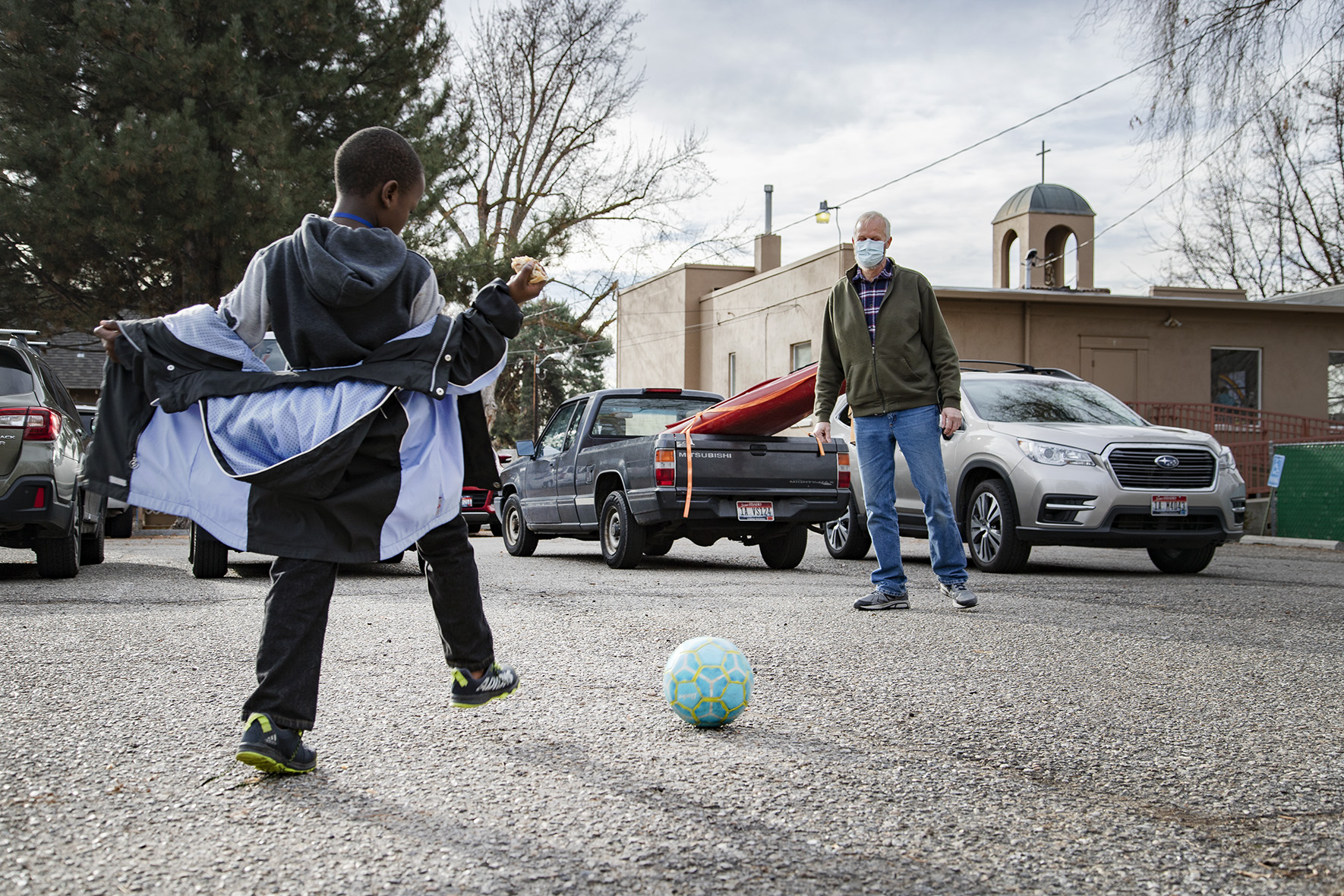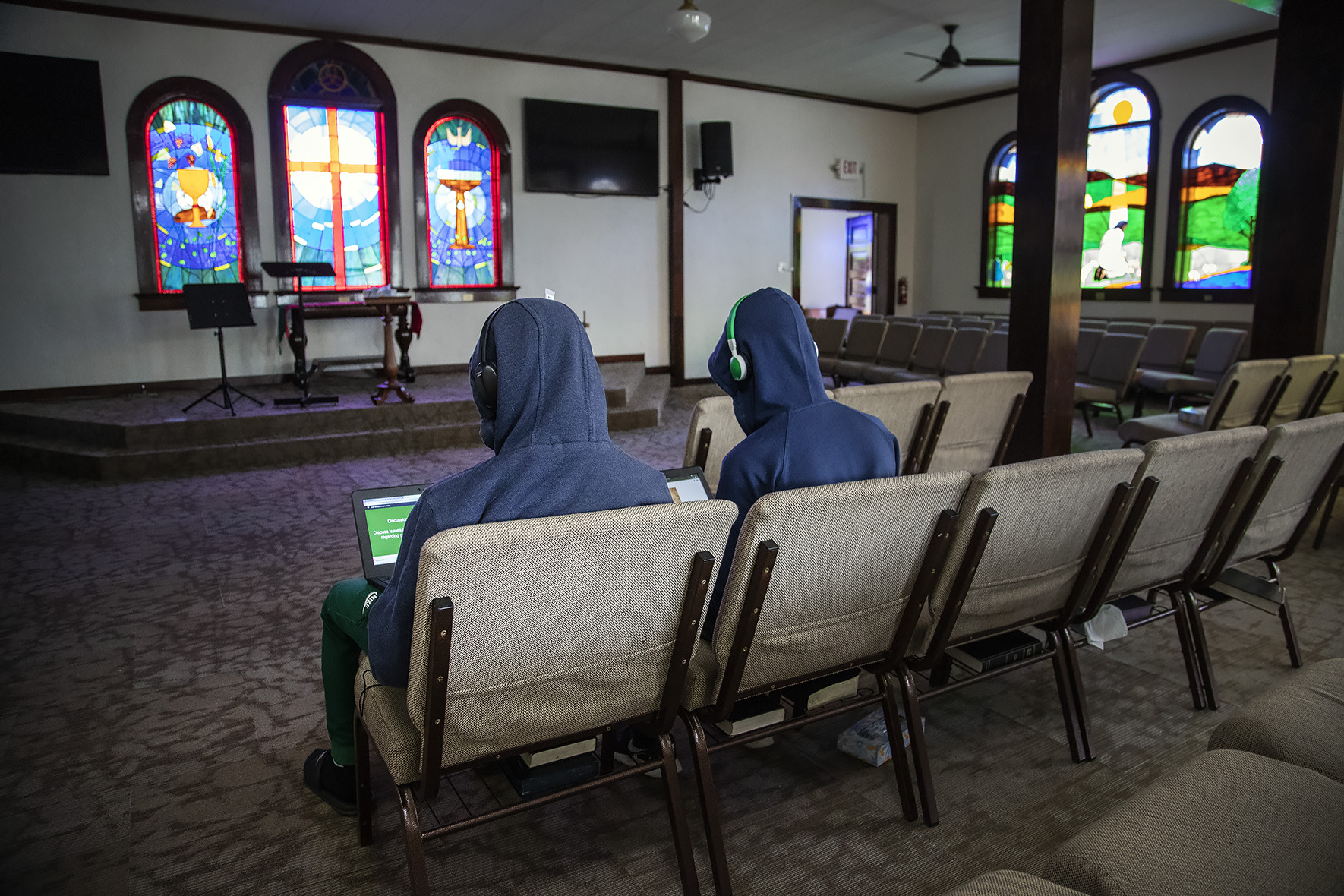
Two boys sat in the front pew of Boise’s Collister United Methodist Church, Friday, heads bowed, almost as if they were listening to a sermon. Except, the building is closed for services during the COVID-19 pandemic.
The boys were in class, staring at computer screens checkered with the faces of their classmates. In the sanctum around them, Arabic chatter blended with the question-and-answers of a tutor helping with history homework.
“What does this mean?” ninth-grader Tiba Alghnaimawi asked tutor Aubrey Stephan, pointing to a word on her assignment about the U.S. Constitution.
“Philadelphia is a place,” Stephan replied. She opened a map on her phone and Tiba’s eyebrow’s shot up. “Oh, that’s far,” the girl said through her tye-dye mask.
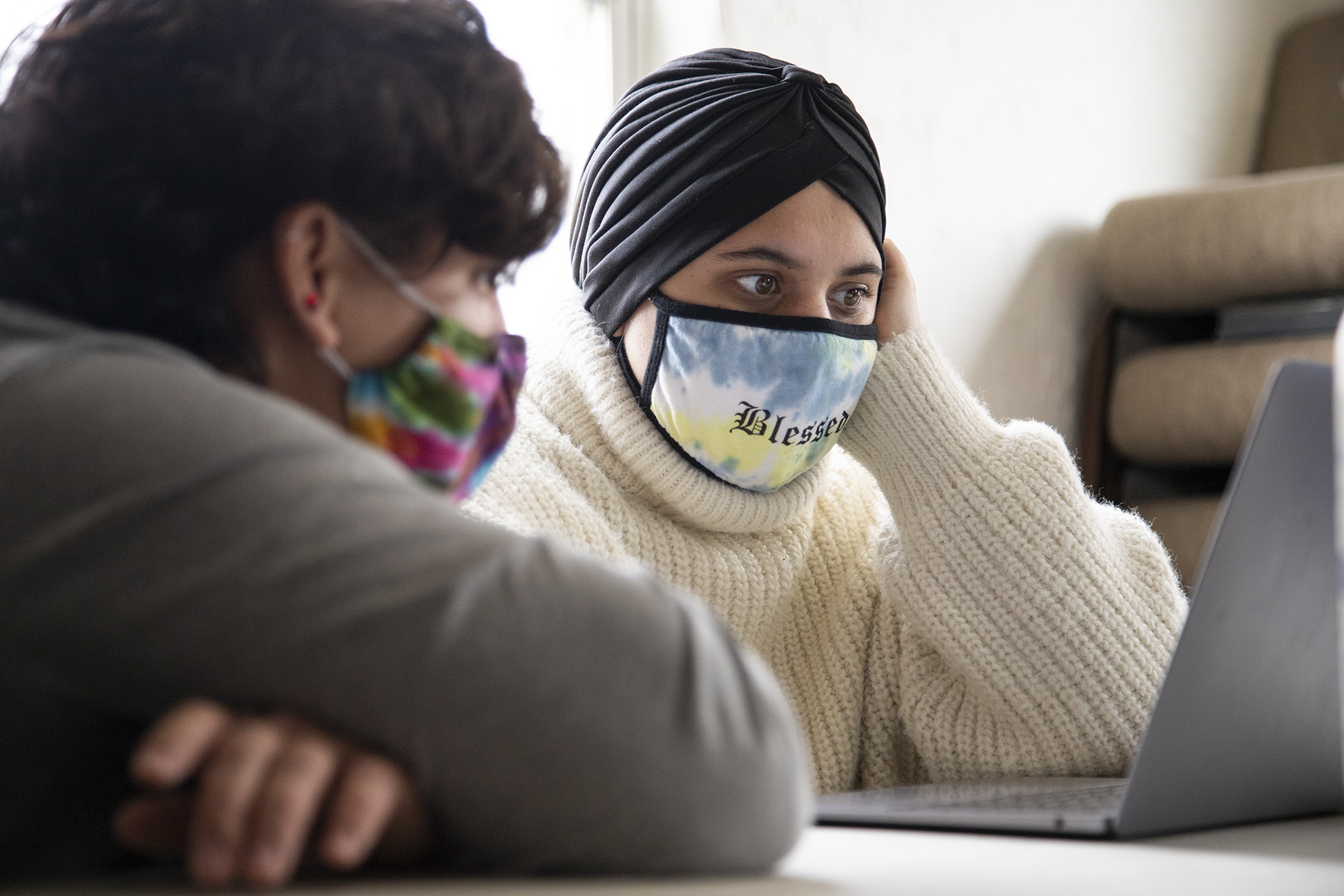
A coalition of Idaho refugee aid agencies and community partners have been offering in-person academic help for English Language Learners and students from refugee backgrounds since November, in a space donated by the Collister church. Christina Bruce-Bennion, who helps coordinate the program through the Idaho Office for Refugees, said the goal is to support the students who face an uphill climb during distance-learning because of language barriers, because they watch younger siblings, or have parents who work essential jobs and are not available to help with remote learning.
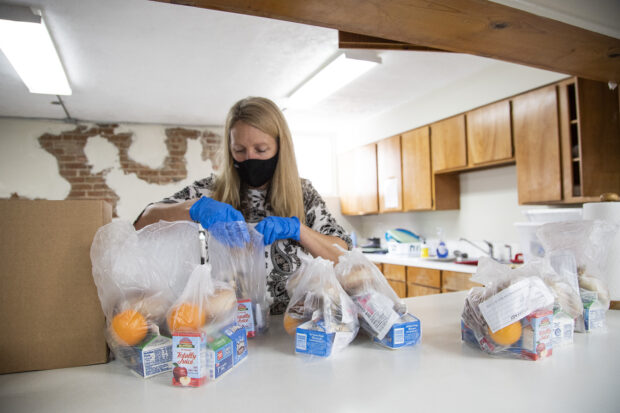
Volunteers help supervise students and answer questions, and the Boise School District provides meals for lunch. Last week, about 15 students attended class from the Collister church. Elementary students sat at tables scattered through the church’s basement, while some of the older students took advantage of the superior internet from the quiet worship space upstairs. On recess breaks students shot hoops, watched videos, or played asphalt soccer in the church parking lot.
Rev. Jenny Hirst, associate pastor at the church and a Title I tutor at nearby Taft Elementary School, said it was a “no brainer” for the church to provide a space for the program.
“This idea that all of these groups seek to help students be successful and have every opportunity to thrive — that’s the church’s mission, too,” Hirst said.
Asked how the school year has gone so far, 15-year-old Tiba just shook her head. “Not good,” she said.
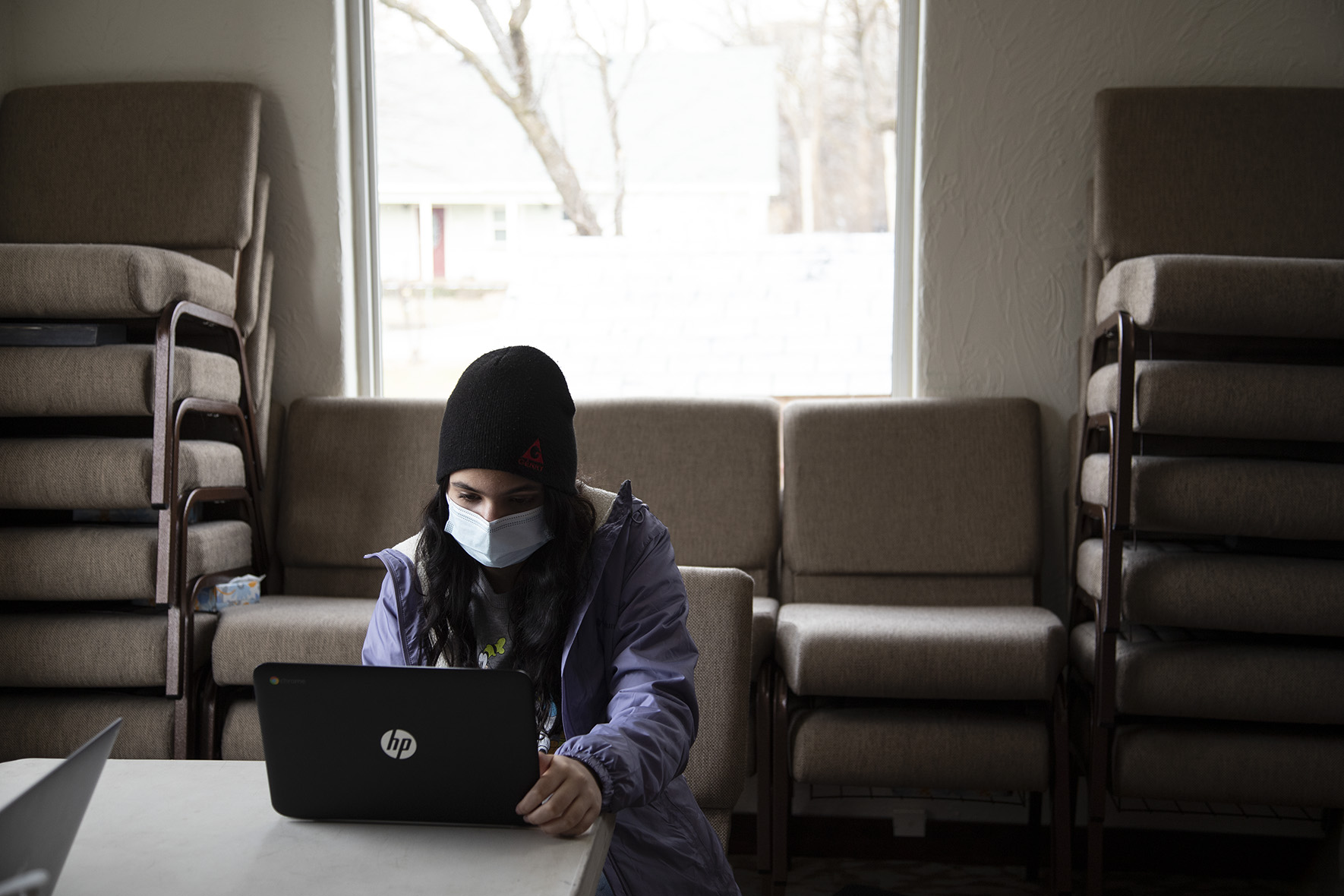
It’s easier for Tiba to focus on schoolwork at the Methodist church than it is at home, where she’s distracted by her four younger siblings and the temptation to fall asleep. Tutors at the church can also help her with challenging subjects, like economics and American history.
“I don’t have all of that back in my country, so it’s very new to me,” she said. Tiba’s family is from Iraq, and her native language is Arabic. She speaks English well, but says her reading and writing aren’t perfect yet, which adds another challenge to online school.
Zahraa, Tiba’s younger sister, thinks teachers have given students more work during distance-learning, but without the same help. She needs someone to explain assignments to her, Zahraa said, but their parents don’t speak English.
“We don’t really understand much, and it’s really hard. When we started to come here, it got a little bit good,” Zahraa said. “We just got a little bit of help, and we do more work.”
Students in the Boise School District will start school with a hybrid schedule on Tuesday, returning to classrooms for the first time since late November. The church will remain open for students to attend classes on the days they’re learning from home.
The coalition also plans to open another location at Centennial High School the first week in February, and potentially more locations in the Boise and West Ada school districts, depending on volunteer capacity. Families or volunteers interested in participating can contact Christina Bruce-Bennion at [email protected] or 208-947-4321.
